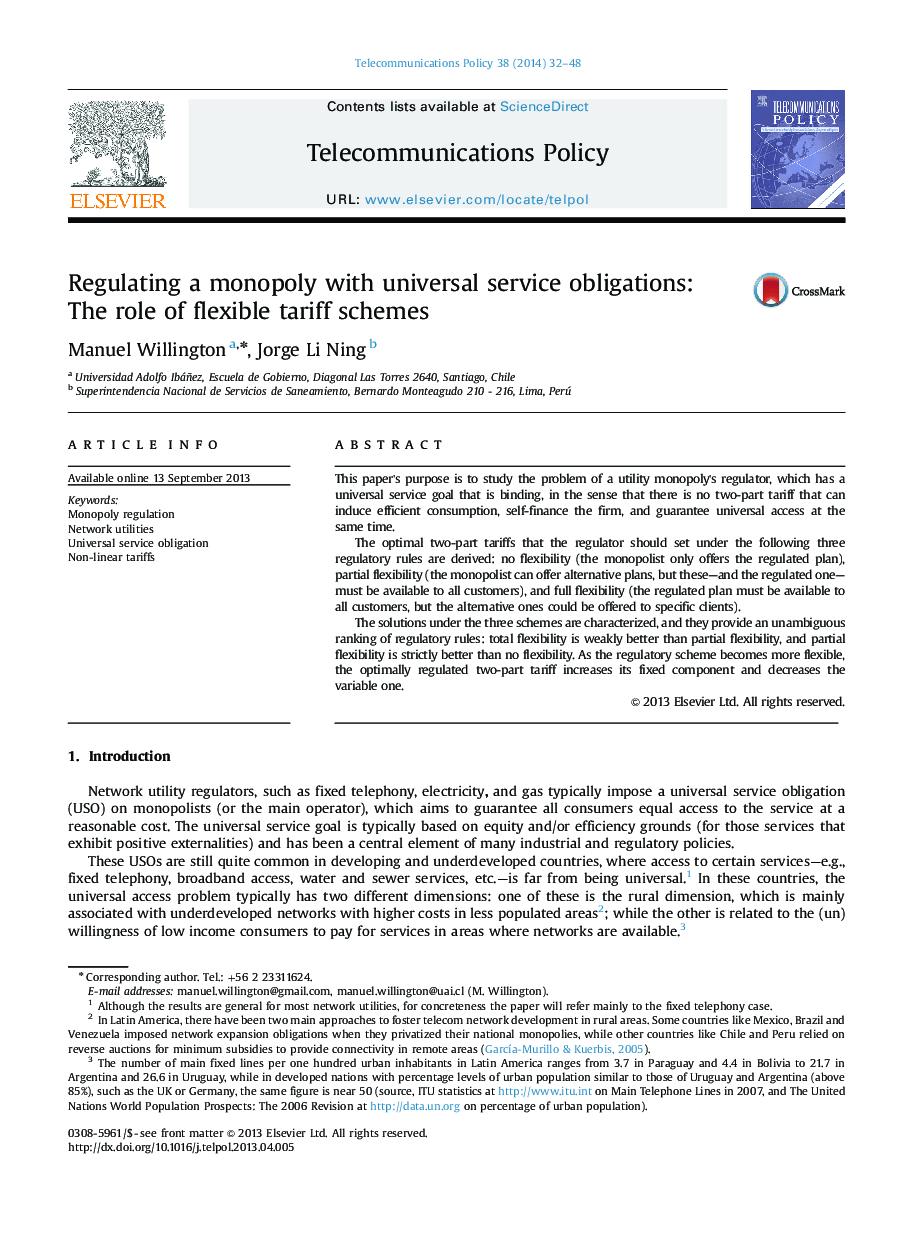| کد مقاله | کد نشریه | سال انتشار | مقاله انگلیسی | نسخه تمام متن |
|---|---|---|---|---|
| 557308 | 874666 | 2014 | 17 صفحه PDF | دانلود رایگان |
• We present a tractable setup to address universal access obligations issues.
• We analyze three regulatory regimes that vary on the degree of flexibility.
• We show how the monopolist reacts to each regulated tariff and regulatory regime.
• We find optimal regulated tariffs; the first-best is reached under full flexibility.
• Partial flexibility is good for political economy reasons; it can be efficient.
This paper's purpose is to study the problem of a utility monopoly's regulator, which has a universal service goal that is binding, in the sense that there is no two-part tariff that can induce efficient consumption, self-finance the firm, and guarantee universal access at the same time.The optimal two-part tariffs that the regulator should set under the following three regulatory rules are derived: no flexibility (the monopolist only offers the regulated plan), partial flexibility (the monopolist can offer alternative plans, but these—and the regulated one—must be available to all customers), and full flexibility (the regulated plan must be available to all customers, but the alternative ones could be offered to specific clients).The solutions under the three schemes are characterized, and they provide an unambiguous ranking of regulatory rules: total flexibility is weakly better than partial flexibility, and partial flexibility is strictly better than no flexibility. As the regulatory scheme becomes more flexible, the optimally regulated two-part tariff increases its fixed component and decreases the variable one.
Journal: Telecommunications Policy - Volume 38, Issue 1, February 2014, Pages 32–48
